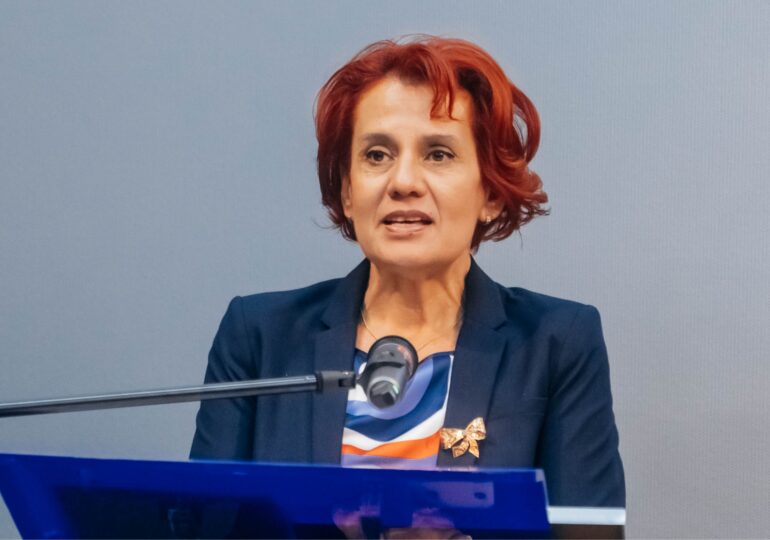As expected, everyone will cut expenses, but only those that do not directly affect them or with which they agree. When the adjustment reaches their own doorstep or a sensitive area, the appetite for reform ends. There are many reasons.
Some, of course, are purely subjective, related to their own pocket. Others are ideological, such as Claudiu Năsui’s extreme appetite for cuts. And others are truly professional.
For example, increasing teaching norms may be a good idea where there are many schools, possibly with too few teachers, but it can be a disaster for rural education, where, even with the current norm, a teacher must teach in 2-3 villages to meet the norm, as noted by Assoc. Prof. Mircea Miclea.
We are now in a cacophony of hypotheses, scenarios from sources. And the biggest risk is to find ourselves in a Musk-DOGE type scenario, where indiscriminate chainsaw cutting has by no means brought the expected savings, but has endangered the administration.
You can't advance a scenario like: every mayor must lay off 20% of employees, as rumored in the press. What would be the difference from Simion's 500 thousand civil servants? Just numerical.
A well-thought-out reform, with maximum efficiency, requires careful analysis, surgery with a scalpel, not an axe. Yes, Romania is short on time, it's true, but the cost of poorly thought-out, mass cuts can be higher, both economically and socially.
SRI, power without reform
Nicușor Dan announced the intention to involve the SRI again in the fight against tax evasion. It's a return to a policy of Traian Băsescu, which seems to serve as a great source of inspiration. Which is not inherently bad.
Yes, resorting to intelligence services means admitting the failure of the civilian state and sharing power with the militarized system. But here we are, whether we like it or not, and during a major crisis, it's natural to involve all state institutions in the offensive. Instead of complaining every year that the SRI is swallowing more and more money, it's better to put it to work for that money.
But not under any conditions. During the years of presidential abandonment by Iohannis, institutions went haywire, and intelligence services could not be an exception. Fragile civilian control over them has not improved at all, quite the opposite.
What does civilian control mean? Not monitoring operational actions, that would be absurd. It means administrative issues, related to budget and its execution, for example, but also the so-called smoke theory. When there's smoke, you look for fire, explained in a podcast by USR deputy Alen Coliban, a member of the SRI Control Committee.
Smoke can be a press scandal, strange developments in data regarding technical surveillance warrants, major intelligence failures. No abuse has ever been identified, the SRI Committee has found no fire.
They don't even know how many employees the SRI has. People act as if they're handling a basket of eggs. There hasn't been an SRI activity report approved by Parliament since 2020. It should be annual, a public document.
And in these conditions, the most pressing question is not whether the SRI should get involved in combating tax evasion, estimated at the current budget deficit level. It's great for everyone to get involved.
The question is how to ensure that this involvement does not become abusive from an institution that, practically, escapes almost entirely from civilian control. And just because in a few weeks, months, it's not exactly known, the service will have a civilian chief after two years of vacancy in the position, it doesn't mean that the problem will be solved as long as the mechanisms remain the same.
A very serious reform of the services is needed, of civilian control over them, so that missions like combating tax evasion are as low-risk as possible.
But this absolutely necessary reform, directly related to the President of Romania's duties, head of the CSAT, has not been discussed at all during the campaign. As if it were a taboo subject.
Even now, in office, President Dan shows no interest in this direction. I understand that he is concerned about the deficit, but that is not within his competencies. The functioning of the national security system, yes.
Why pay money to the state?
There's another aspect that no one discusses. Good tax collection is not achieved anywhere in the world through coercion alone. You can't have an ANAF inspector and an SRI agent for each taxpayer. The key to thorough collection lies in voluntary compliance.
And it fundamentally depends on the level of satisfaction of individuals with what they receive in return for the money they give to the state. Services, infrastructure, respect.
But as long as the ANAF employee shouts at the entrepreneur and recommends emigration if they don't like how things are going, when people see that their money feeds a huge clientele with salaries, bonuses, and various privileges they can only dream of, when they have to go privately for almost any medical service, when school without tutoring is a utopia, and so on, it's not surprising that they prefer to fiercely hide their money.
Taxes are not a price for benefits, but a robbery.
What did the people of Praid receive from the Romanian state in exchange for the money it collected from their now destroyed small businesses?
The real success in combating tax evasion will occur when the bridges between citizens and the state are rebuilt. And this process hasn't even started.

